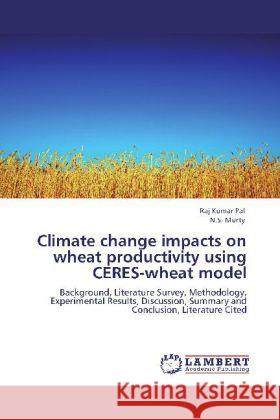Climate change impacts on wheat productivity using CERES-wheat model » książka
Climate change impacts on wheat productivity using CERES-wheat model
ISBN-13: 9783847370307 / Angielski / Miękka / 144 str.
Climate change is one of the most important environmental challenges with its implications on food security, water supply, health, energy etc. The wheat production in the country is highly variable due to inter seasonal weather variability and has been projected to be 109 mt by 2020 which needs sincere efforts to mitigate the effect of climatic aberrations. Specifically, the main purpose of this study was to quantify the impact of changes in temperature, solar radiation and CO2 concentration that affect the level of wheat production. The impact of climate change on wheat production can be minimized through adaptability, varietal management and agronomic practices using CERES-wheat model. In Uttarakhand, wheat productivity accounted 15 % to 30 % more with the timely sown crop (20th November) than late sowing. Wheat yield has the positive correlation with CO2 concentration and negatively correlated with temperature. This book, therefore, provides a new metric of success for farmers to deciding agricultural operations and minimize the risks and extremely important to planners in the developing countries which will be the most vulnerable to the effects of global warming.











